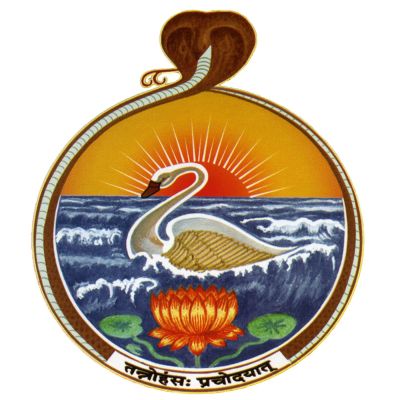Swami Tattwamayananda, currently the Minister of the Vedanta Society of Northern California, San Francisco, (originally founded by Swami Vivekananda in 1900) served in various centers of the Ramakrishna Order in India as editor, publisher, and teacher of Sanskrit, Advaitic texts such as Sri Shankaracharya's commentaries on the 'Prasthanatraya' (the fundamental Sanskrit texts of Vedanta philosophy), Buddhism and Indian philosophy. He underwent traditional training in Hindu scriptures, Sanskrit, Vedic and Vedantic literature for many years, from his early days. Before coming to the United States in January 2012 he was teaching Sanskrit, Vedantic scriptures and Indian philosophy at the Training center in Belur Math, the institution that trains the monks of the Ramakrishna Order at the headquarters of the Ramakrishna Mission, Kolkata, India. Apart from his traditional education, the Swami has also received modern University education in English literature, psychology, European history, and Western philosophy. He is frequently invited for lectures on Yoga, Vedanta, and traditional Hindu scriptures and for participating in interfaith dialogues.For more:Web: www.sfvedanta...
https://www.spreaker.com/show/featured-lectures
Vivekachudamani 3 | Yearning for Liberation: The Quality That Brings All Other Qualities| Swami Tattwamayananda
Verses: 23-31
This lecture was given by Swami Tattwamayananda at Stanford University on May 19, 2019. The lecture was hosted by the Stanford Hindu Students Association.
-At stage one, Titiksha, is a strong determination to carry forward with your ideal with no response to negative obstacles. At a later stage, even the thought of response is gone. In the Bhagavad Gita, it is described as an iron will coupled with deep contentment, santosha. Buddha’s vow is a perfect example.
-Shraddha is critical for spiritual learning because Brahman is apparently invisible at the beginning of spiritual life and Jagat is apparently so real at the beginning. Without Shraddha, we cannot even listen to a Vedanta lecture.
-There is one kind of doubt, which consists of intellectual arrogance and hypocrisy – not wanting to believe. There is sincere disbelief which takes you to real belief because it is based on a sincere quest for truth.
-Shraddha leads to a firm belief in the words of the Guru and the words of the Shashtras. It is not accomplished through force but through an open process of listening, reasoning, and then obtaining experience.
-Samadhana is also explained with an example from the Bhagavad Gita.
-Mumukshutvam leads to all other qualities. The methods of intensifying Mumukshutvam and the dynamics of spiritual liberation over many lifetimes are explained.
-Only through Mumukshutvam, will all other qualities really bear fruit.
-An elaborate discussion is also given on the definition of Bhakti in the Vivekachudamani (nididhyasana) and its relation to the Bhakti discussed in the Bhagavad Gita. Advaita and Bhakti are clearly harmonized.
